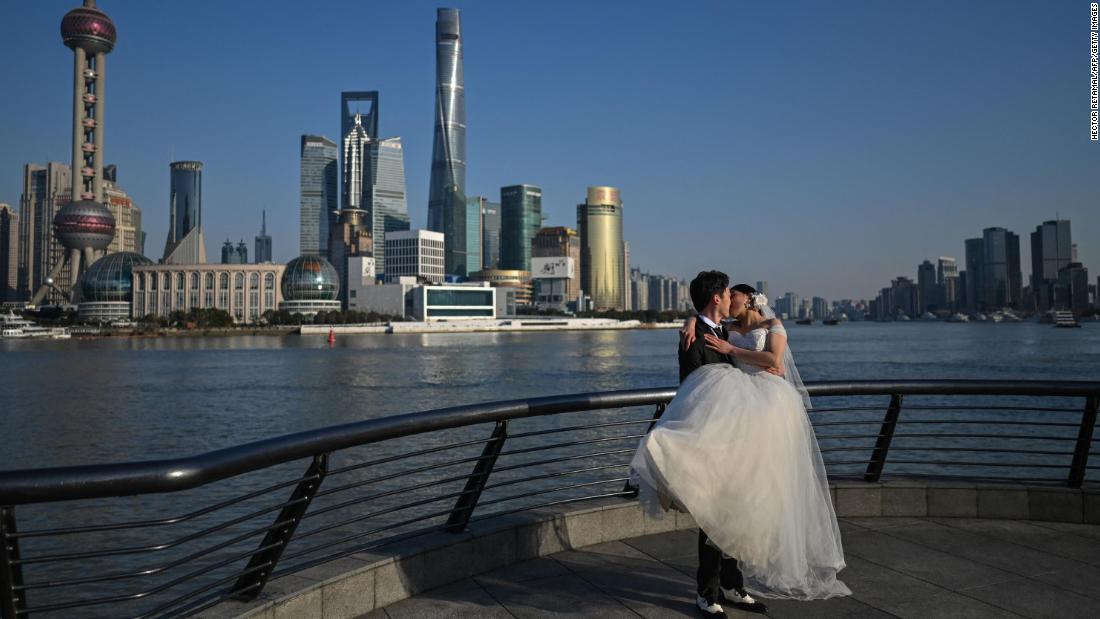
There were 7.6 million marriage registrations in 2021, data released by China’s Ministry of Civil Affairs last week shows.
At the same time, the average age of newlyweds is inching up, with nearly half of those married last year age 30 and above.
Experts say the knock-on effect on what is already a shrinking workforce could have a severe impact on the country’s economy and social stability.
In just six years, the number of Chinese people getting married for the first time fell by 41%, from 23.8 million in 2013 to 13.9 million in 2019, according to China’s National Bureau of Statistics.
The decline is partly due to decades of policies designed to limit China’s population growth, which mean there are fewer young people of marriageable age, according to Chinese officials and sociologists.
But it’s also a result of changing attitudes to marriage, especially among young women who are becoming more educated and financially independent.
Statistics show both genders are delaying marriage. From 1990 to 2016, the average age for first marriages rose from 22 to 25 for Chinese women, and from 24 to 27 for Chinese men, according to the Chinese Academy of Social Sciences.
Global Times also pointed to increasing work pressures for young people, who face stagnating wages, a competitive job market and rising costs of living.
In 2014, the country’s working-age population started to shrink for the first time in more than three decades.
China isn’t the only country struggling with this problem.
Governments in all three countries have introduced measures to encourage births — such as financial incentives, cash vouchers, housing subsidies and more child care support — with limited success.
CNN’s Nectar Gan contributed to this report.
